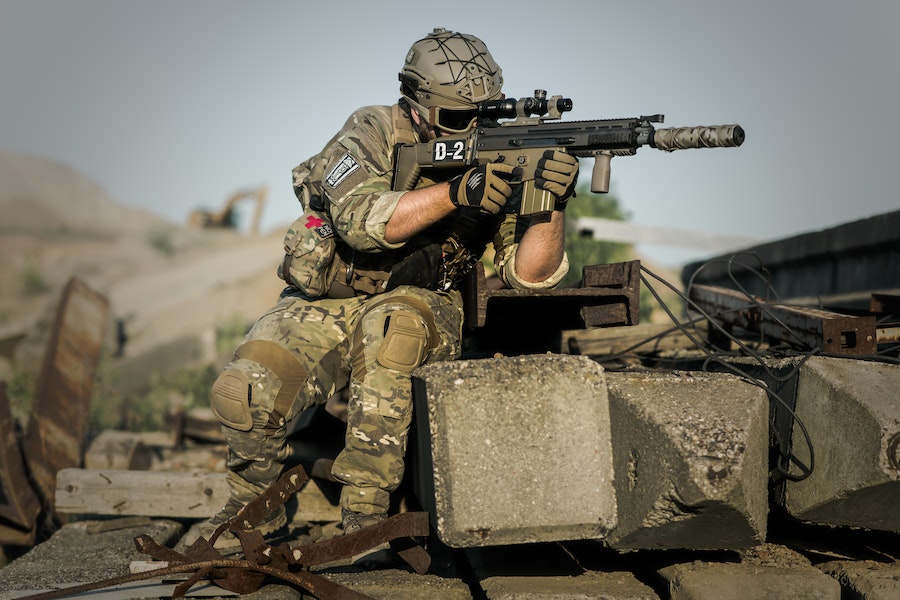
ETF Arms Industry: Is investing in arms trade possible?
One of the largest markets in the world is the (legal) arms trade. It is therefore not at all strange to invest in this, although it can of course be morally objectionable. One of the ways to invest in the arms industry is via an ETF. In this blog you can read more about investing in the arms trade via an ETF .
Why invest in the arms industry?
There are tensions all over the world and in some cases these result in an armed conflict. The recent situation in Ukraine has shown this once again. You can see that more and more countries are arming themselves more, whereby you can safely speak of a real arms race. Because there is so much trade in weapons, this market is attractive to investors. For example, you can invest in the weapons industry via ETFs.
What is an ETF in the Arms Industry?
ETF is the abbreviation of Exchange Traded Fund. A term that is also often used for this is ‘tracker’. With a tracker you follow the position of certain shares, in this case the arms industry. This is not about the share itself, but about its underlying value. Read more about what an ETF exactly entails here .
A moral consideration
If you are going to invest in the arms industry, it is wise to first ask yourself whether you really want this. After all, you are investing in a market in which war and violence are never far away. As an investor, you are indirectly part of this. On the other hand, there are also investors who do not really care what they invest in. Armed conflicts have been around for centuries and will certainly not simply disappear. It is up to you as an investor to make a choice in this.
What does the law say?
In the Netherlands, it is not or hardly possible to invest in the arms industry. In 2013, it was prohibited by law to invest in companies that produce, sell or distribute cluster munitions or components thereof in the Netherlands. In any case, it is prohibited for private individuals to purchase trackers that are related to the arms trade (if fully focused on the arms trade). Professional parties are also prohibited from doing so, because this is seen as socially irresponsible. Read our blog about socially responsible investing (ESG) .
The role of the AFM
In the Netherlands, there is a supervisor active that determines what you may and may not invest in. This is the Netherlands Authority for the Financial Markets , abbreviated as AFM. For example, this supervisor has prohibited trading in shares of the South Korean company LIG Nex1 Co Ltd. The reason is that this company is involved in the production of cluster bombs.
Companies such as the American Lockheed Martin and the British BAE Systems are also excluded by the AFM. These companies produce missiles, defense vehicles, aircraft and naval vessels, among other things. These are used to supply the armies of the nations in question. In an ETF in which these companies are represented, you cannot invest in the Netherlands.
How can you invest in the arms industry?
There is a (small) possibility to invest in the arms trade. The legal prohibition does not apply to investments where the producers of cluster munitions represent less than five percent of the value of that investment. In practice, this means that you can invest in an ETF for the arms industry, but that this only takes up a very small part of the ETF. So, to illustrate: an ETF that focuses on the S&P in America can contain a small percentage (for example 1%) of the arms industry.
